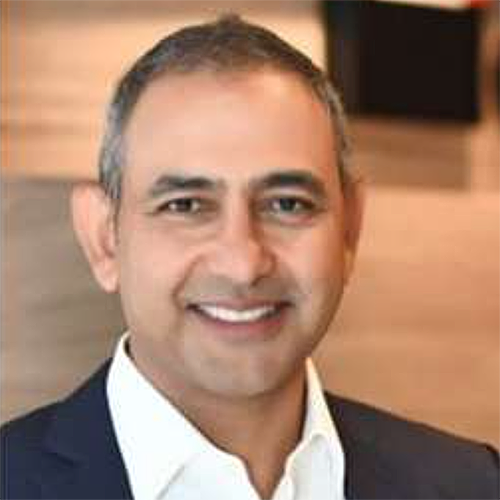 |
|
| Kwan: We are uniquely suited to service China's growing funds market |
The global financial crisis dealt a serious blow to the global custody business with plenty of clients doing what used to be unthinkable in the industry: changing global custodians.
After suffering the tumult of the crisis like other global custodians, State Street Bank though is recovering nicely with new mandates and a promising business pipeline, even if a lot of work remains to be done and the management team is still working double time to address the issues and challenges that face global custodians in the new market environment.
In Asia, the organization has been restructured with Hong Kong becoming the hub for North Asia ex Japan with a strong focus on Greater China (China, Hong Kong and Taiwan) and Singapore as the hub for Asean.
To manage the North Asia hub, State Street tapped Kwan Sau, a veteran China hand, who has been operating in the region for 11 years and was deeply involved in setting up the Hong Kong office as the Asia operational hub in 2000. Before moving back to Hong Kong in 1999, Kwan was risk manager for the State Street US Mutual Funds Area, which currently employs more than 2,500 people and has assets of more than US$2.3 trillion, overseeing the risk management and compliance programmes.
The fact that State Street is tapping someone with a risk management background to build its business in what could be the highest-growth market in the world is indicative perhaps of the changing dynamics of the global custody market following the crisis.
One step at the time
The restructuring involves beefing up the global custody team in Hong Kong, which currently employs more than 300, under the State Street Global Services umbrella.
The bank recently obtained preliminary approval from the China Banking Regulatory Commission (CBRC), the banking regulator in China, to prepare for the set-up of a branch in Beijing. Kwan’s team is busy preparing for this.
The opening of the Beijing branch will be timely for the bank, since few would doubt the promising business prospects and substantial opportunities for growth in the China market.
As a global custodian, State Street is particularly eyeing cross-border investments. Although this space is not expected to experience explosive growth until the renminbi becomes a freely convertible currency, the bank is already positioning itself. This means that building State Street’s global custody business in China will happen gradually rather than quickly. “At the beginning we don’t expect to have a huge operation. We’ll probably have around 20 people,” Kwan explains. “We will be gradually moving our client servicing team responsible for the China clients to Beijing.”
A particular growth area in China is the Qualified Domestic Institutional Investor (QDII) market. (QDII a transitional arrangement which provides limited opportunities for Chinese domestic investors to access foreign markets).
In fact the setting up of the Beijing branch will come in the wake of a major QDII mandate which saw State Street being appointed global custodian and trading service provider to the Guotai Nasdaq-100 Index Fund. The fund is managed by Guotai Asset Management Company and China Construction Bank (CCB) will act as local custodian.
Uniquely suited
Announced on June 17, the mandate is a landmark for State Street since the fund is the first in China to track the performance of an overseas index. The awarding of the mandate reinforces the bank’s stature as a primary player in the global custody business in China following the global crisis, and demonstrates, what the firm describes as, their wholistic approach to helping clients by providing services beyond pure custody. “This is an opportunity for Chinese investors to invest in Nasdaq-listed companies. State Street’s global approach to investment servicing, research and trading, and vast experience with index-linked products makes us uniquely suited to service China’s growing funds market,” Kwan says.
Under this mandate, the bank will offer a range of integrated investment servicing solutions to the fund, including global custody, fund accounting, investment compliance reporting services, foreign exchange and portfolio research, and trading solutions.
What makes the mandate different is that other QDIIs have local investment management companies which employ what are referred to as “foreign advisers” or “investment advisers” to help them structure their funds. In the case of the Guotai Nasdaq-100 Index Fund though, the fund was structured without any help from “foreign advisers”.
“They studied the structure and came up with the idea [of using an overseas index for the fund] by themselves,” Kwan points out. “They have no foreign investment adviser, which makes the fund unique in that sense.”
The fund is the first cross-country overseas fund under QDII that is managed by a single local investment manager (Guotai). In addition, it is the first such fund to involve time zone differences and other operational challenges which make it unparalleled compared to the other domestic offerings.
In terms of trends, Kwan thinks there is increasing demand from QDII investors to expand the QDII scheme outside China’s domestic and even the Asian regional markets. “We have been working with CCB for quite some time,” Kwan notes. “QDII is not new to the market and what we have seen prior to this Guotai-Nasdaq fund is really more a Hong Kong-type or regional QDII for Asia. So when we were talking with our clients Guotai and CCB, they said they wanted to do something that will differentiate themselves. Naturally, Nasdaq-type funds came to mind,” Kwan says.
This means that besides custody and fund accounting, there will be a market for State Street’s other global custody services including transition management, brokerage and foreign exchange trading. For the Guotai Nasdaq-100 Index Fund, in particular, State Street’s operational expertise in custody, and accounting including settlements makes it a core focus.
Aspirations do not suffice
“As you know, with index funds the important thing is to pick the right index and then to strike the right balance,” Kwan elaborates. “But in this case the challenge is more with the operational flow, timing, and coordination which basically do not allow for any hiccups at all.”
In this connection, the China Securities Regulatory Commission (CSRC), which regulates the fund management industry, has been closely looking at operational risk management of index funds particularly in the wake of the growing popularity of Exchange Traded Funds (ETFs).
For global custodians, this means having to enhance their readiness and capabilities in dealing with the operational risk management of the funds under their custody.
“I think we have been lucky that after the crisis, State Street has come out even stronger and better than our competitors. Our operational readiness has been tested,” Kwan enthuses. “I think we can say we should be grateful for where we are at present.”
In terms of the changing dynamics of the global custody industry in Asia following the global crisis, Kwan believes the independent global custody model followed by State Street has successfully withstood the challenges brought on by the crisis and is likely to do so in the event of another crisis.
Post crisis there has been no major change in the global custody space in Asia with the top US custodian banks including BNY Mellon, J.P. Morgan, State Street, and Northern Trust remaining the dominant players.
“Most of the top players are US institutions,” Kwan observes. “Asia has good potential for global custody, but in terms of any immediate changes in the landscape, I don’t see any in the horizon yet.”
In Asia, Kwan sees the major Chinese banks too eventually becoming players in the global custody business as they continue to expand their activities beyond the domestic market, although this may take some time to happen. “When I first covered China 10 years ago, even then some of the local banks had aspirations of being a global custodian. But if you look at the landscape and try to see how many true global custodians there are, there are still only a handful,” Kwan notes.
“State Street got into the global custody business in 1974 in the wake of the US pension reform and it has taken 36 years for us to reach where we are at present. It tells you that aspirations are not enough. It is about being able to get a lot of things right such as infrastructure, timing and people, and everything else.”









